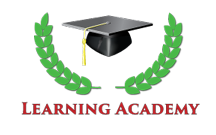
- Description
- Objectives
- Outline
- Materials
- Certification
- System Requirements
- Watch a Demo
Love working with children and want to learn techniques for supporting their development? Our Child Care Worker course provides practical advice to prepare you for your role as an educator of young children. Learn the principles of providing ultimate learning environments, developing engaging curricula for various developmental stages, meeting children’s social-emotional needs and interests, and communicating and interacting with parents and staff professionally. This course covers the historical influences on early childhood education as well as quality standards for programs and types of curriculum methods. It also includes learning strategies and guidance to enhance physical, cognitive, language, social-emotional, and creativity development.
After completing this course, you should be able to:
- Recognize the historical influences on early childhood education, as well as assessment methods and evaluations for quality standards
- Identify the basics of the early education domains, how to support learning and play and the concepts of different types of curriculum
- List the basics of learning theories and teaching strategies
- Recall how to provide effective learning environments for children while connecting with families and communities
- Recognize issues in early childhood education and how to advocate for young children, as well as discovering various career options in the field
Child Care Worker Module 1
Foundations of Early Childhood Education
- What is Early Childhood Education?
- How Early Childhood Education is Valued
- Early Childhood Program Quality
- Positive Effects of Early Childhood Education
- Current Issues and Trends in Early Childhood Education
- Historical Context
- Recent History of Early Childhood Education
Child Care Worker Module 2
Developmentally Appropriate Practices
- What is Developmentally Appropriate Practice?
- Current Issues in Developmentally Appropriate Practice
- Intentional Teaching
- Teacher’s Role in Context
- Understanding Development and Learning
- The Role of Theory
- Brain Development
- Erikson’s Psychosocial Theory of Human Development
Child Care Worker Module 3
Learning and Developing
- Understanding Individual Differences
- The Influence of Biology on Development
- Nature and Nurture
- Risk or Resilience
- Physical Development
- Cognitive Development and Abilities
- Emotional and Social Development
- Inclusion
- Role of Culture in Development
- Linguistic Diversity
- Verbal and Nonverbal Communication
Child Care Worker Module 4
Building Partnerships with Families and Guiding Young Children
- Family Dynamics
- Family Systems Theory
- Challenges for Families
- Reciprocal Relationships with Families and Family-Centered Practices
- Barriers to Effective Communication
- Community Partnerships
- Developing Social Skills and Self-Regulation
- Promote Academic Success
- Family Relationships: Attachment Theory
- Positive Behavior Support
Child Care Worker Module 5
Planning Effective Curriculum
- The Science of Teaching
- Classroom Organization
- Research-Based, Effective Teaching Strategies
- Giving Quality Feedback
- What is Scaffolding?
- Effective Teaching with Digital Media
- What is Curriculum?
- Research-Based Curriculum
- Components of Effective Curriculum
- What are Standards?
Child Care Worker Module 6
Assessments and Teaching Communication
- Learning the Language of Assessment
- Formative and Summative Assessment
- Informal and Summative Assessment
- Observation
- Standardized Testing
- Screening
- Diagnostic Testing
- Developmentally Appropriate Assessment
- Children’s Language Development
- Critical Importance of Language Development
- Types of Language
- Scaffolding
- Building Listening Comprehension
- Phonological Awareness
- Phonemic Awareness
- Reading Comprehension
Child Care Worker Module 7
Investigating, Problem Solving, and Social-Emotional Learning
- Importance of Mathematics and Science
- Cognitive Foundations of Early Learning
- Continuum of Cognitive Development
- Language of Math
- Language of Science
- Effective Science and Engineering Curriculum and Teaching
- Social-Emotional Foundations of Early Learning
- Continuum of Social and Emotional Development
- Social Development and Play
- Social Studies
Child Care Worker Module 8
Putting It All Together in Practice
- Importance of Physical Fitness and Health
- How Physical Development Occurs
- Motor Development
- Effective Health Curriculum and Teaching
- Life as an Early Childhood Educator
- Considerations for Teaching
- Professional Standards
- Joy of Teaching Young Children
**Outlines are subject to change, as courses and materials are updated.**
Ed4Career is committed to being both environmentally conscious and making it easier for you to study! We’re making your education mobile! All of our textbooks are now provided as eTextbooks. You can access them on your laptop, tablet, or mobile device and can study anytime, anywhere.
The move away from physical books to eTextbooks means you get the latest, most up-to-date version available. This also makes your training more accessible, so you can study anywhere you have your phone or tablet. The best part is that all materials are included in your training cost so there are NO extra fees for books!
Upon successful completion of this course, students will be prepared to sit for the NCCB’s Certified Child Care Worker (CCCW) exam.
**Certification exams are not included in the cost of the course.**
Internet Connection
- Broadband or High-Speed - DSL, Cable, and Wireless Connections
*Dial-Up internet connections will result in a diminished online experience. Classroom pages may load slowly and viewing large audio and video files may not be possible.
Hardware Requirements
- Processor - 2GHz Processor or Higher
- Memory - 1 GB RAM Minimum Recommended
PC Software Requirements
- Operating Systems - Windows 7 or higher
- Microsoft Office 2013 or higher. Also, you could use a general Word Processing application to save and open Microsoft Office formats (.doc, .docx, .xls, .xlsx, .ppt, .pptx)
- Internet Browsers - Google Chrome is highly recommended
- Cookies MUST be enabled
- Pop-ups MUST be allowed (Pop-up Blocker disabled)
- The Kindle Reader App or VitalSource Bookshelf App are needed for many of our courses (No special equipment needed. This can be downloaded for FREE onto your computer.)
- PowerPoint Viewer (if you do not have PowerPoint)
- Adobe PDF Reader
- QuickTime, Windows Media Player &/or Real Player
MAC Software Requirements
- Operating Systems - Mac OS x 10 or higher with Windows
- Mac office programs or a Word Processing application to save and open Microsoft Office formats (.doc, .docx, .xls, .xlsx, .ppt, .pptx)
- Internet Browsers- Google Chrome is highly recommended
- Cookies MUST be enabled
- Pop-ups MUST be allowed (Pop-up Blocker disabled)
- The Kindle Reader App or VitalSource Bookshelf App are needed for many of our courses (No special equipment needed. This can be downloaded for FREE onto your computer.)
- PowerPoint Viewer (if you do not have PowerPoint)
- Adobe PDF Reader
- Apple QuickTime Media Player


